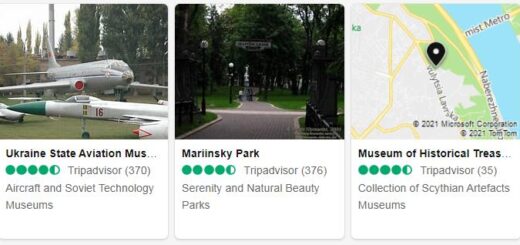Serbia 2018
Serbia is a country located in the Balkans with an estimated population of 7 million people. The economy is largely based on services, industry and agriculture, with the main exports being manufactured goods, food products and raw materials. In terms of foreign relations, Serbia is a member of the United Nations and other international organizations such as the Council of Europe. According to extrareference, Serbia is a parliamentary republic with an elected president who serves as head of state while the prime minister serves as head of government. In 2018, Aleksandar Vucic was reelected to serve another term in office as President of Serbia.
Yearbook 2018
Serbia. In February, the European Commission presented a new strategy for the Western Balkans. It is noted that Serbia and Montenegro in particular can become EU members as early as 2025 as they have come the longest in the EU process. However, it is noted that in that case “strong political will, genuine and lasting reforms and definitive solutions to the neighboring disputes” are required. What the European Commission thinks about Serbia is that it is not welcomed as long as it does not have a comprehensive and legally binding agreement on Kosovo.
- According to Abbreviationfinder: SRB is an three letter acronym for Serbia.
According to Countryaah.com, Belgrade is the capital city of Serbia, a country located in Southern Europe. Bosnian Serbian commander Ratko Mladić appealed in March 2017 for his sentence from November 2017, when the UN War Criminal Tribunal sentenced him to life imprisonment for genocide, war crimes and crimes against humanity. Mladić was convicted, among other things, of the so-called Srebrenica massacre in 1995. In April, Bosnian Serb leader Radovan Karadžić also appealed against his war crime sentence. He was sentenced in 2016 by the UN Criminal Tribunal for the former Yugoslavia (ICTY) to 40 years in prison for crimes committed during the war in the Balkans.
Nationalist Serbian politician Vojislav Šešelj was sentenced in April for war crimes by the Supreme Court of the United Nations. Šešelj led a paramilitary force in the 1990s that, with war propaganda and incitement against non-Serbs, would create a Greater Serbian kingdom. He was now given ten years in prison but released because he has already been detained in the UN Detention Center for twelve years.
In July, lawyer Dragoslav Ognjanović was murdered on an open street in the capital, Belgrade. He was one of the lawyers defending President Slobodan Milošević during his war crimes trial in the early 2000s.
At the end of August, the government set up an economic recovery council to get the economy back on track.
In April 2013, President Nikolić apologized on Bosnian TV for the Serbian war crime in Srebrenica in 1994. In June 2012, the President of Montenegrin TV had claimed that there was no massacre in Srebrenica at all. An opinion that aroused international depravity.
The prime minister balanced on a knife-edge in relations with Kosova. In April, he met with the leaders of Kosova in Brussels and subsequently stated that, while Serbia would never recognize an independent Kosovo, it was time to redefine its borders. The April talks resulted in an agreement between the two countries that the Serbs in Kosova could have their own police force and their own appeals court. Of the Serbs in northern Kosova, he was considered a traitor to the Serbian cause and to serve Albanian interests alone. Another agreement was reached in Brussels in September, after which border crossings between Serbia and Kosova would be opened during 2014.
Prime Minister Dačić was a clear supporter of the EU. reflected in his handing over of war criminals Radovan Karadžić and Ratko Mladić to the United Nations War Criminal Court for Exjugoslavia. The transfers took place while he was Minister of the Interior. Then, in June 2013, the Council of Europe decided that formal admission negotiations could start in January 2014.
In September 2013, the Serbian Gay Pride parade for the third year was banned by Serbian police following threats of violence from right-wing groups and at the request of the Serbian Orthodox Church.
In September, Kosova and Serbia signed new agreements, including paved the way for Kosova to apply for its own international telephone code when Serbia’s accession negotiations with the EU began. A few days later, Serbia announced that the local councils of the Serbs in northern Kosova would be dissolved so that the Serbian population could be fully integrated into Kosova. At the same time, Kosovo’s parliament passed an amnesty law that granted amnesty to people who had otherwise resisted the country’s authorities. Both came into force in December at the same time as the two countries agreed on the appointment of a Kosova Serb as Police Chief of Serbian Northern Kosova. At the end of 2014, however, the process of normalization ran into serious problems after Kosovo was given a nationalist conservative government,
In February 2014, the Criminal Tribunal in Belgrade sentenced 9 former officers of the Yugoslav army to a total of 120 years in prison for the killings of over 120 Albanian civilians in Kosova in 1999. Similarly in February, Djuro Tadic was sentenced to 10 years in prison for participating in the Bosnian Serb forces’ murder 18 people – including a 13-year-old girl – in northwestern Bosnia-Herzegovina in September 1992. Two other co-accused were given 11 and 10 years in prison. Despite the judgments, international human rights organizations criticized the slow handling of the cases. The tribunal’s work was not popular with the conservative nationalist population.
Due to conflicts in the coalition government, the president postponed elections in time for March 2014. It became a landslide victory for the conservative SNS coalition, which more than doubled its mandate to 158 out of Parliament’s 250. It thus had an absolute majority, yet formed a coalition government with the Social Democratic SPS. SNS President Aleksandar Vučić became new Prime Minister.



